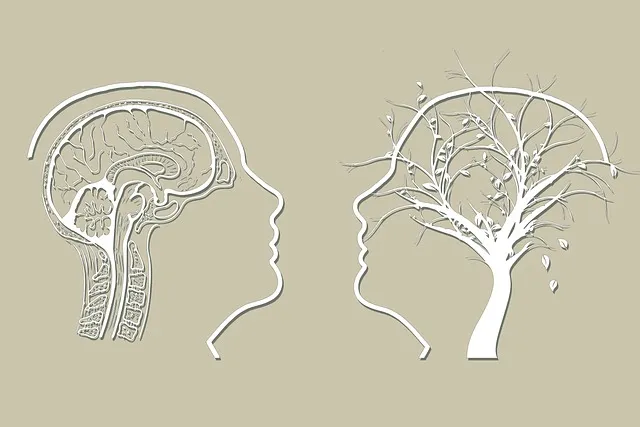The mental health app market is booming due to increasing demand for accessible support and sustainable emotional well-being practices. To effectively target users in Boulder, known for its wellness focus, developers must incorporate self-reflection, mindfulness exercises, and evidence-based practices inspired by local nature. Leveraging Kaiser Permanente's renowned training programs in Boulder, which emphasize Inner Strength Development and Trauma Support, can enhance app marketing and trust. By offering tailored workshops based on user feedback and analytics, apps can continuously improve and cater to the specific needs of Boulder residents, preventing burnout.
Unwind the power of mental wellness apps with a strategic marketing approach tailored to the unique needs of Boulder’s residents. This article delves into crafting an effective strategy, beginning with understanding the thriving mental health app market and identifying your target audience in this vibrant community. Learn how integrating Kaiser Permanente’s training programs can enhance appeal, followed by engaging content strategies specifically designed for Boulder users. Discover key metrics for measuring success through analytics and user feedback integration.
- Understanding Mental Health App Market and Target Audience
- Incorporating Kaiser Permanente Training Programs in Marketing
- Crafting Engaging Content Strategies for Boulder-based Users
- Measuring Success: Analytics and User Feedback Integration
Understanding Mental Health App Market and Target Audience

The mental health app market is a rapidly growing and evolving landscape, driven by increasing awareness and a growing demand for accessible support. Understanding this dynamic environment requires a deep dive into user needs and preferences. According to Kaiser Permanente training programs in Boulder, promoting emotional well-being has become a top priority for many individuals seeking self-care routine development for better mental health. This shift is evident in the rising popularity of mental wellness apps that offer personalized tools and resources for stress management, anxiety relief, and overall mental health awareness.
To effectively target this audience, app developers must recognize that modern users are not just looking for quick fixes but rather sustainable emotional well-being promotion techniques. Incorporating features that facilitate self-reflection, mindfulness exercises, and evidence-based practices can attract and retain users committed to their mental health journey. By aligning with current trends in Mental Health Awareness and leveraging strategies such as Self-Care Routine Development for Better Mental Health, developers can position their apps as valuable tools within this thriving market.
Incorporating Kaiser Permanente Training Programs in Marketing

Incorporating Kaiser Permanente training programs into marketing strategies for mental wellness apps can significantly enhance their appeal and effectiveness. Boulder, known for its vibrant community and focus on well-being, has been a hub for innovative mental health initiatives, including the renowned Kaiser Permanente training programs. These programs emphasize Inner Strength Development and Trauma Support Services, making them valuable assets for marketing teams aiming to connect with users seeking mental illness stigma reduction efforts.
By leveraging these training programs, mental wellness app marketers can craft compelling narratives that resonate with their target audience. Highlighting the expertise and resources offered by Kaiser Permanente, such as evidence-based practices and community engagement, allows apps to position themselves as reliable companions on the journey towards improved mental health. This strategic integration not only enriches marketing content but also fosters trust and credibility among users interested in accessing high-quality, supportive services.
Crafting Engaging Content Strategies for Boulder-based Users

To craft engaging content strategies for Boulder-based users, mental wellness apps should tap into the unique blend of outdoor activities and mindfulness that define this vibrant community. Highlighting features like meditation practices inspired by nearby natural landscapes or stress-reduction techniques integrated with local hiking trails can resonate deeply with Boulder residents. Leveraging Kaiser Permanente training programs and incorporating Mind Over Matter Principles can provide valuable content, addressing the area’s focus on holistic health.
By integrating Coping Skills Development into content, apps can cater to Boulder’s demographic of active individuals seeking balance. Highlighting anxiety relief techniques through mindfulness exercises, breathing practices, or even virtual group sessions mirroring the close-knit community spirit could be highly appealing. These strategies not only attract but also retain users by aligning with their lifestyle and environmental context, ensuring a stronger connection to the app.
Measuring Success: Analytics and User Feedback Integration

Measuring success is a cornerstone when developing any marketing strategy, and for mental wellness apps, it’s no different. Analytics play a pivotal role in understanding user engagement, identifying trends, and gauging the impact of the app on individual well-being. By integrating analytics tools, developers can track key performance indicators (KPIs) such as daily active users, retention rates, and feature usage patterns. These insights provide valuable data to refine marketing efforts and personalize content for better user experiences.
Furthermore, incorporating user feedback mechanisms is essential. Encouraging users to share their experiences, suggestions, and concerns through surveys or review systems allows the app to adapt to individual needs. For instance, a mental wellness app could offer Stress Management Workshops Organization sessions tailored to common issues identified through user feedback, fostering a sense of community and empowering users with Emotional Well-being Promotion Techniques. This continuous improvement process can significantly contribute to burnout prevention, a critical aspect often addressed by organizations like Kaiser Permanente training programs in Boulder.
Developing a robust marketing strategy for a mental wellness app requires a nuanced understanding of both the target audience and the market dynamics. By integrating Kaiser Permanente’s training programs, leveraging engaging content tailored to Boulder-based users, and measuring success through analytics and user feedback, app developers can create a compelling narrative that resonates with users seeking mental health support. This approach not only enhances app visibility but also fosters trust and adoption within this sensitive and competitive space.






